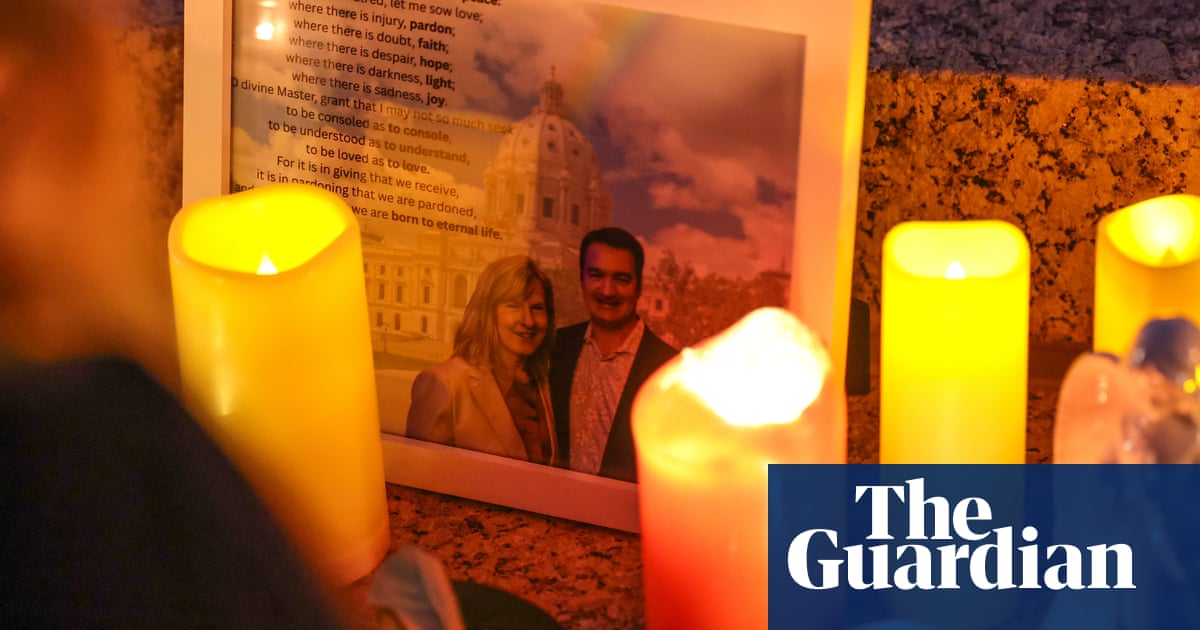Around the end of 2022, I had an idea for a book about the history of resistance to Nazism. I wanted to show that Nazism has faced nonconformity, refusal and protest ever since it was born in 1920. I also wanted to explore beyond a handful of famous heroes and cast a spotlight on people who changed history without entering popular memory. When I began my research, Donald Trump had just announced his candidacy for the Republican ticket in 2024. When I gave the manuscript to the publisher a little over two years later, he was president-elect.
His comeback, the darker version of Maga that came with him, and the Democratic party’s collapse gave fresh relevance to the stories of resistance to far-right extremism that I was finding. Even as I was piecing them together, they began to intrude on the present. It was a haunting transformation – and it helped me to understand why the resistance to Trump has been flawed from the moment he stepped on to the political stage.
We’ve never been shy about broadcasting our opinions. We’ve worn pussy hats, put up lawn signs, and trolled Trump and his supporters, both online and off. But while such acts may get attention, their capacity to create change is less certain.
This can even be true for mass protests. Americans have sometimes underestimated the effectiveness of protest – recent demonstrations in Los Angeles and across the country are an important part of resistance. In the era of social media and the 24-hour news cycle, though, protests can risk becoming a spectacle. And when the government is given a chance to portray them as violent, their effectiveness is extinguished – because they end up benefiting the forces they mean to challenge.
The resisters that I researched, by contrast, were laser-focused on creating change. Whether they were satirists drawing anti-Nazi cartoons in 1920s Germany or former neo-Nazis becoming peace advocates in the 21st-century US, they sought to improve life for themselves and others in the here and now, in any way that they could, no matter how small.
The German activist Emmi Bonhoeffer is a powerful example. She built a support group for the Holocaust survivors who testified in the 1960s Frankfurt Auschwitz trials, where Nazis were tried for their roles at the death camp. In doing so, Bonhoeffer resisted the Nazis’ desire for both their crimes and their victims to be forgotten. Her group – most of them homemakers – ultimately helped nearly 200 people as they took the stand. They inspired similar groups to form around other war crimes trials in Germany, too. But they didn’t advertise. They didn’t have a slogan or an outfit or a flag. They didn’t even bother to give their group a name. Their first and only concern was to clear a path toward justice for at least some of the Nazis’ victims. For Bonhoeffer, resistance wasn’t about getting attention. It was about creating change.
What’s more, the resistance to Trump has always been stained by a judgmental streak. Whether we’re denouncing them as a “basket of deplorables” or mocking them on social media, we invariably devote too much energy to belittling his supporters. This has convinced us of our own moral rectitude. In turn, this has made us complacent, and complacency only deepens our inaction.
The resisters that I learned about pulled no punches when it came to judging Adolf Hitler and his inner circle. But they spent more time judging themselves than his supporters. Consider the German émigré Sebastian Haffner. In the late 1930s, he wrote an extraordinary autobiographical book about his life as a so-called “Aryan” in Hitler’s Germany. It was only published in 2000, posthumously, after his son discovered it hidden in a desk drawer. For Haffner, publication didn’t really matter. The book was, first and foremost, an imaginative space in which he subjected his own behavior and thinking and privilege to relentless scrutiny. Through this process of self-scrutiny, he grew into one of the Nazis’ most effective critics in exile.
The judgmental streak has also given some of our attempts to resist Trump a holier-than-thou quality that diminishes our capacity for empathy. We’re too quick to believe that 77 million Americans voted for Trump out of stupidity, not desperation or disenfranchisement. By contrast, I was always struck by the sense of shared humanity among the resisters that I discovered – like the lower-level British intelligence officials who persuaded members of the German public to help them smoke out Nazi war criminals after 1945; or Leon Bass, the Black American soldier who drew on his own experiences of segregation to deepen his understanding of the suffering of the Jewish people he liberated from Buchenwald.
after newsletter promotion
Like every far-right leader in history, Donald Trump has intoxicated his supporters with nostalgia for a past that never existed in order to push a corrupt and hateful agenda of his own. Eventually, many will realize that he’s lied to them. Perhaps they’ll lose their jobs because of his economic policies, or see law-abiding friends and family deported because of his immigration policies. Perhaps their children will suffer from measles because of his health policies. Whatever the case, when their moment of realization comes, we must be ready to embrace them, and to weep with them for what they’ve lost. If there’s one thing that I learned while writing my book, it’s that effective resistance to the far right is never just about defeating the enemy. It’s about creating a better future for everyone.
What’s giving me hope now
Teachers and librarians are championing the written word as a tool of resistance. Colleagues in the field of Holocaust education are collaborating on free and innovative events to inform the public about the collapse of democracy in early 20th-century Europe – and to establish what we can learn from it today. And, as I argue in my book, the arts can connect us to our own humanity, and to the humanity in others. Supporting your local art museum, attending a concert or joining a book club should all be cause for hope – because in a divided, partisan society, such acts constitute resistance.
-
Luke Berryman, PhD, is an educator and author of the forthcoming book Resisting Nazism, to be published by Bloomsbury in 2026

 German (DE)
German (DE)  English (US)
English (US)  Spanish (ES)
Spanish (ES)  French (FR)
French (FR)  Hindi (IN)
Hindi (IN)  Italian (IT)
Italian (IT)  Russian (RU)
Russian (RU)  6 hours ago
6 hours ago
























Comments